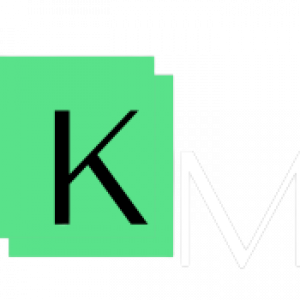Sales Optimization
Establishing Conversion Funnel
A marketing strategy refers to a business’s overall game plan for reaching prospective consumers and turning them into customers of your products or services. A marketing strategy contains the company’s value proposition, key brand messaging, data on target customer demographics, and other high-level elements.
- A marketing strategy is a business’s game plan for reaching prospective consumers and turning them into customers of their products or services.
- Marketing strategies should revolve around a company’s value proposition.
- The ultimate goal of a marketing strategy is to achieve and communicate a sustainable competitive advantage over rival companies.
- “The sole purpose of marketing is to sell more to more people, more often and at higher prices.” (Sergio Zyman, marketing executive and former Coca-Cola and JC Penney marketer)
Conversion Funnel Steps
Competitive Research
Setting Goals
Establishing Conversion Funnel
Tracking Results
Establishing Landing Page/Website Conversion Pass
When you run ads with Google Ads or Social Media Platforms, you may want to see whether clicks on your ad led a customer to take a certain action, such as a purchase on your website, calling your business, signups, or downloading an app.
When a customer completes an action that you’ve defined as valuable, these customer actions are called conversions.
If you want to increase sales on your website, you have to be familiar with coding and analytical tools to establish a tracking conversion measurement and conversion path.
Sounds complicated? No worries, we are here to help!
If you’re ready to reach more clients today, simply contact us at the email address or phone number below, and let us help you to increase sales!
Establishing Landing Page/Website Conversion Pass
Establishing Conversion Events (Phone Calls, Purchases, Add to Cart, Sign In, and more...)
Setting Goals
Tracking Results
Analyzing Visitors’ Behavior Flow
Analyzing landing page data and visitors’ demographic data
Creating Remarketing and Retargeting Audiences
Sales
Increase Sales with PPC Campaigns and Marketing Automation
CAMPAIGN SET UP
Setting up Google, Facebook, Instagram, Linkedin, Pinterest accounts.
Determining Objective (qualified leads, convert leads, purchase, phone call, awareness, etc)
Determining Budget in order to fulfill your goals
Identifying your Target Audience
Developing Media Strategy
Creating a Marketing Message to the targeted audience
Developing Video, Animation, Image Design
Chatbot Developing
Establishing Campaign on Marketing Platforms
Lead Management
Measuring and Analyzing results
Setting up a shopping campaign, YouTube, Google Ads, Google Search, Video, Discovery, Display, G-mail, Leads, Awareness, etc.
CONVERSION ANALYSIS
Setting up Conversion Events (Phone Calls, Purchases, Add to Cart, Sign In, and more…)
Defining Conversion Rates
Studying visitors’ demographic data (Location, Age, Gender, Interests
Analyze landing page data ( Number of visits, Leads, and Conversion Rates)
Analyzing Page Speed
Analyze Visitors’ Behavior Flow
Shopping Behavior Analysis
Using Google Analytics Data to Understand Visitors in order to Predict they Needs
CONVERSION OPTIMIZATION
Establishing Conversion Funnel
Setting Goals
Tracking Results
Finding Sales Funnel Leaks
A/B Test Analyzing
Keywords and Negative Keywords Optimization
SEO Optimization
Copyrighting Optimization
Visual Elements Optimization (Video, Animation, Illustration, Product Pictures).
Bid Optimization
Conversion Rate Optimization
Cost Conversion Optimization
Landing Page/Website Conversion Pass Optimization
MARKETING AUTOMATION
Social Media Automation
Email Marketing Automation (it is a process designed to convert leads into customers)
Marketing Automation Segmentation by demographic and geographical information, buying and engagement behavior
Setting Up Email Autoresponder
Sending emails to clients about new products/services
Send “Abandoned Cart” reminders
Optimizing Remarketing and Retargeting Ads
Remarketing and Retargeting
Remarketing and retargeting, is a very common and popular form of digital marketing in which marketers serve ads to users who have visited their website, or a specific web page, and who have or have not taken a specific action. It’s an effective way to target people who have already shown some interest in your business or brand.
When it comes to retargeting vs. remarketing, the main difference is in the strategy. Retargeting is mostly about serving ads to potential customers based on cookies while remarketing is usually based on emails. Remarketing works by collecting the information of users and creating lists, which are used later to send targeted sales emails.
Contact Us
Call Us
+972 523 487 111
